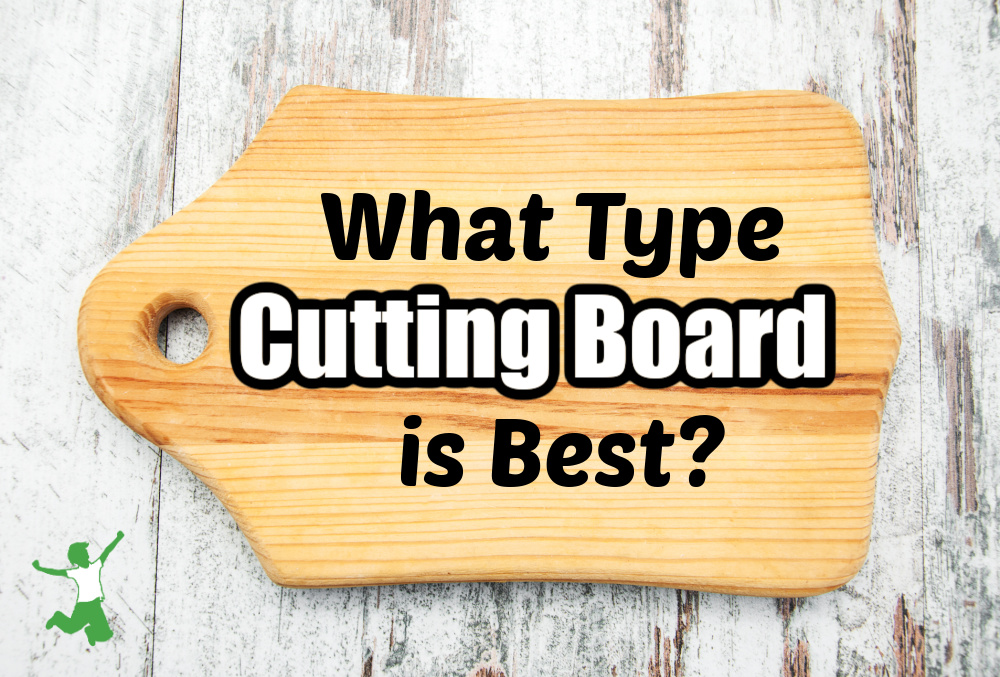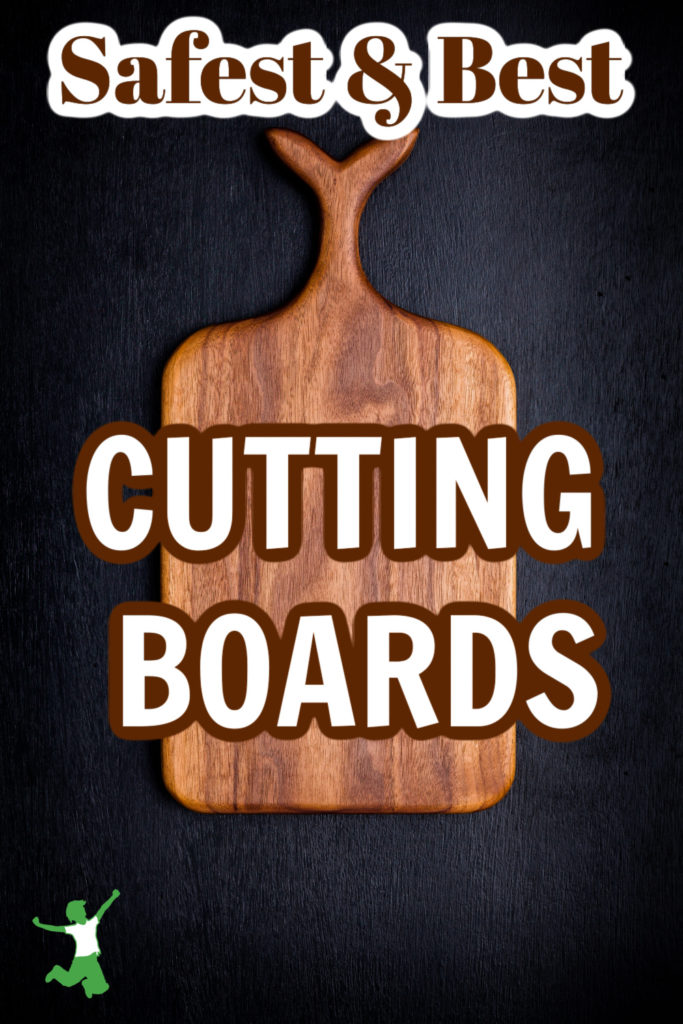Comparison of the various types of cutting boards and whether plastic is truly safer and better than wood as claimed.
Cutting boards of various shapes and sizes are very important tools in any home where meals are freshly prepared.
As for the best cutting boards, however, which material is truly optimal for food prep safety?
Are plastic or wood cutting boards preferable?
The answer might surprise you!
Restaurants Consider Plastic Cutting Boards Safer
Plastic has long been considered superior to wood.
For this reason, people have generally preferred this type of material in the name of food safety.
The prevailing wisdom is that plastic is less hospitable to bacteria, and therefore, would be safer.
Most restaurants use plastic for this reason. It is considered more sanitary by the industry because it is easier to wash and does not absorb food juices. (1)
But…is this really true?
Research Compares Plastic vs Wood
Research simply does not bear this out in practice, however.
As it turns out, wood is much less likely to harbor pathogenic bacteria than plastic!
Wood by far makes for the safest cutting boards to use in your home!
The research conducted by food microbiologists at the College of Agricultural and Life Sciences at the University of Wisconsin-Madison discovered that wood somehow eliminates bacteria but plastic does not. (2)
The manner in which the bacteria perished on the wood but not on the plastic is not known.
The scientists found that 3 minutes after contaminating a wooden cutting board, 99.9% of the pathogenic bacteria had died, while none of the bacteria died on plastic.
In addition, bacteria held at room temperature overnight on a plastic cutting board increased in number.
Surprisingly, the researchers could not find any bacteria present on wood treated in exactly the same manner!
So it seems that the prevailing “wisdom” that plastic is safer than wood is not true after all.
Wooden cutting boards are the best and safest choice after all.
Why is Plastic Unsafe?
I was happy to discover this information as I have always intuitively preferred wood over plastic cutting boards.
For one thing, wood is more stable than plastic during chopping. In my experience, you are far less likely to experience an injury when chopping meat and veggies on wood.
In addition, I have always thought that little bits of plastic or chemicals must be somehow released into the food from the repeated exposure to a sharp knife.
I have not seen evidence of this in the research. It just seemed to be common sense. Hence, I have stayed away from plastic and have always stuck with wood.
In particular, I have steered clear of plastic cutting boards with special antimicrobial surfaces.
Any product that boasts that it is antimicrobial screams “hormone-disrupting chemicals”, so I avoid them like the plague.
Best Type of Wood
For the best cutting boards, it is best to stick with old-fashioned wood block.
Do not use cheaper boards made with bonded wood pieces. The glue holding the board together can be toxic.
In addition, avoid “pre-oiled” wood boards. Oil them yourself at home with unrefined coconut or olive oil.
My choice is unfinished organic bamboo butcher block (like this one) as it is a sustainable, fast-growing natural resource that is manufactured in a safe manner as well.
Are Probiotics the Reason Wood is Best?
As an aside, I have a theory about why pathogenic bacteria are unable to survive on wood boards but instead grow exponentially on plastic.
Lactobacilli is a beneficial bacteria on the surface of all natural things. This includes our own skin. This beneficial microbe kills off pathogens that are within its vicinity.
This is why grassfed raw milk is safer than pasteurized. The naturally occurring probiotics “crowd out” any pathogens that might get into it.
Heat-treated foods just get contaminated if the same thing were to happen.
Perhaps this is the same method for how pathogens on wood cutting boards are destroyed within 3 minutes, yet this same thing does not happen on plastic?
(1) Why Don’t Restaurants Use Wooden Cutting Boards
(2) Wood Cutting Boards, Not Plastic, Are Safer for Food Prep









spray
@ Jill diluted white vinegar in a spary bottle
Is Plastic Really Better than Wood for Cutting Boards? – The Healthy Home Economist http://t.co/rzg643R
Most of the bamboo I’ve seen comes from China (like everything else). Any suggestions where to buy bamboo cutting boards? Does ‘made in China’ make a difference?
I don’t think made in China is a problem though domestically sourced bamboo would certainly be preferable. Bamboo grows like a weed so no matter how it’s harvested, it grows right back and very quickly from what I’ve read.
BTW…do we want to know who is behind it all?
I have a cutting board made of wood from a rubber tree..it’s really quite pretty. I can’t say the same of any plastic one I’ve ever seen.
I came to the realization years ago that if the FDA, USDA CDC or any other GOVT entity makes a claim on ANY health related topic, you can just go ahead & do the opposite & you will be on the right track. Think about it..keeping people sick keeps people employed in govt jobs..
I’m curious about how a glass cutting board would fare. While they can be porous, wouldn’t you think with proper cleaning they’d be safe as well?
Thanks 🙂
I was wondering the same thing!
I use a glass cutting board all the time. LOVE it! Not porous, can go in the dishwasher and no gross chemicals.
I have no data on this but I have a small glass cutting board myself for cheese. I would imagine since it is a natural material like wood, that it would be comparable in safety.
I think the only issue with glass cutting boards is that they can dull your knives…….I don’t know this for a fact, it’s just something I’ve heard before and sounds reasonable 🙂
Rachel – this is absolutely true. I spent a small fortune on my first Global chef’s knife. A few months later it was so dull. I took it back to the knife store, where I bought it. The owner asked me -first thing- “what kind of cutting board do you use?” I told him glass. He said glass is terrible on knives…it dulls them quickly. I went home and put my glass cutting board in the Goodwill box.
Oh thank god! Mine is wood.. lol. Do you know the best way to clean it?
I just wash mine in warm soapy water. Some folks use white vinegar which seems to be an excellent way to do it.
My parents used to have a wooden chopping block in their kitchen and they would slice a lemon in half and rub it around the wood.
Oops, I should clarify they used the lemon AFTER washing it with soap and water.
Is Plastic Really Better than Wood for Cutting Boards? – The Healthy Home Economist http://t.co/Ds0zP1s